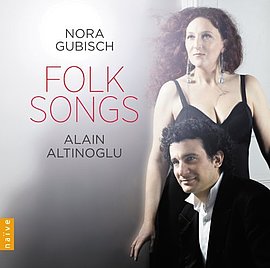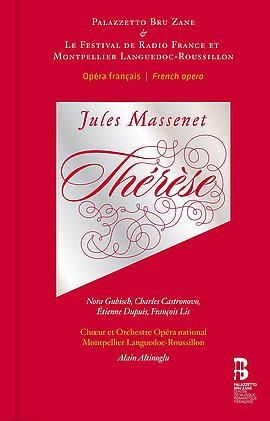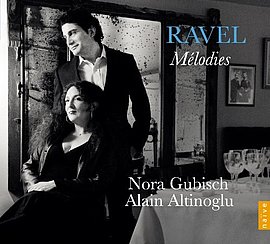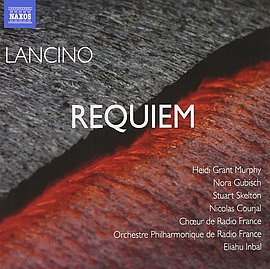
|
Singer |
|
Nora Gubisch |
|
Mezzo-Soprano |
Biography – about the artist.
Paris-born mezzo-soprano Nora Gubisch brings her flair and charisma to the world’s greatest opera stages, theatres, and concert platforms of today. Beginning her career at just 24 years old, two years later Gubisch made her debut in the title role of Fenelon’s ‘Salammbô’ at the Opéra de Paris. It was around this time Gubisch first worked with the late Sir Colin Davis performing ‘Romeo et Juliette’, after which Davis invited Gubisch to perform Tippett’s ‘A Child of our Time’, also performing together on tour.
With a wide repertoire of orchestral song cycles, symphonies, and oratorios, Nora Gubisch has performed under the batons of Sir Colin Davis, Myung-Whun Chung, James Conlon, Christoph Eschenbach, Nikolaus Harnoncourt, Armin Jordan, Lorin Maazel, Kent Nagano, Georges Prêtre, and Jukka-Pekka Saraste, as well as with orchestras including New York Philharmonic, Wiener Philharmoniker, Tonhalle-Orchester Zürich, Sächsische Staatskapelle Dresden, Danish National Symphony Orchestra, London Symphony Orchestra, City of Birmingham Symphony Orchestra, BBC Symphony Orchestra, Orchestre de Paris, Orchestre National de France, and Orchestre National de Lyon.
This season, Gubisch appears with Orchestre symphonique de la Monnaie in Brussels, singing Mahler’s Symphonies No. 3 and 8 under Alain Altinoglu, and singing Frank Martin’s ‘In terra pax’ with Münchner Philharmoniker. On the opera stage, she will appear in Théâtre royal de la Monnaie’s acclaimed production of Wagner’s ‘Der Ring des Nibelungen’, singing the roles of Erda in ‘Siegfried’, and Waltraute in ‘Götterdämmerung’.
Recent highlights include appearing at the Festival International de Colmar with Orchestre symphonique de Mulhouse singing Dvorák’s ‘Biblical Songs’, and debut appearances with SWR Symphonieorchester and Helsinki Philharmonic Orchestra. Other notable engagements include appearances with Orchestre de Paris as Judith in ‘Bluebeard’s Castle’, a role that is a particular favourite of Gubisch’s; Bamberger Symphoniker at Kissinger Sommer (Rossini’s ‘Stabat Mater’); Orchestre de chambre de Paris (Dvořák’s ‘Biblical Songs’); Orchestre Philharmonique de Radio France (Saariaho’s ‘Adrianna Songs’); and Mahler’s Symphony No. 3 in Berlin.
Having made her Wiener Staatsoper debut as Waltraute in Wagner’s ‘Götterdämmerung’, Gubisch recently sang Brangäne in Wagner’s ‘Tristan und Isolde’ in a new production at the Théâtre royal de la Monnaie. Further recent opera highlights include Charlotte at Barcelona’s Gran Teatre del Liceu in Massenet’s ‘Werther’, Amneris at La Monnaie in Verdi’s ‘Aida’, and Hedwige in Rossini’s ‘Guillaume Tell’ at Chorégies d'Orange.
As a student in Paris, music brought Nora Gubisch together with fellow student, internationally acclaimed conductor Alain Altinoglu. In recital the duo regularly performs throughout Europe, most recently appearing at Sommets Musicaux de Gstaad together with violist Gérard Caussé, performing a programme including works by Schumann and Brahms. For the Naïve label they have recorded two critically acclaimed CDs of Ravel ‘Mélodies’ and ‘Folk Songs’, with the latter continuing to hold a very special place in Gubisch’s heart. For Cascavelle they have recorded a disc of Duparc’s ‘Mélodies’. Her extensive discography further includes Tippett’s ‘A Child of our Time’ with Sächsische Staatskapelle Dresden and Sir Colin Davis, Dusapin’s ‘Perelà’ with the Opéra Orchestre National de Montpellier and Alain Altinoglu, Offenbach’s ‘Rheinnixen’ with Friedman Layer, Humperdinck’s ‘Königskinder’ with Jonas Kaufmann and Armin Jordan, Kodály’s ‘Háry János Suite’, Lancino's ‘Requiem’, Lalo/Coquard’s ‘La jacquerie’, Victorin Joncières’ ‘Joncières’, Philidor’s ‘Carmen Saeculare’, Dubugnon’s ‘Le Songe Salinas’, Massenet’s ‘Thérèse’, and Escaich’s ‘Les Nuits hallucinées’ with Orchestre National de Lyon and Jun Märkl.
In 2023, Nora Gubisch was appointed an Officier of the “Ordre des Arts et des Lettres” in Paris, where she lives with her family.
SEASON 2024/2025
The next dates:
Your contact persons:

Listen, See & feel the music.
Picture Gallery
You need high-resolution images and biographies? Please use this short form. We will send you a download link soon.
Video
Need more material? Feel free to ask:
Discography.
Press.
„Nora Gubisch embodies Erda with the same fidelity as in Das Rheingold. Stung and lively during the fits of anger, she demonstrates impeccable control. The mezzo-soprano dominates the lower registers with a palette of rich, warm and vibrant vocal colours.“
„Nora Gubisch shines in Brangäne with a dense, precise and worked voice, slightly guttural and supported. Thanks to her baroque training, the singer offers a precise and lively management of the breath that gives the role a beautiful juvenility, with clarity in the high notes and depth in the more authoritative passages. The vocal panel is wide, the velocity impressive, the voice open, always.“
 Nora Gubisch © Dirk Leemans
Nora Gubisch © Dirk Leemans
 Nora Gubisch © Dirk Leemans
Nora Gubisch © Dirk Leemans
 Nora Gubisch © Dirk Leemans
Nora Gubisch © Dirk Leemans




